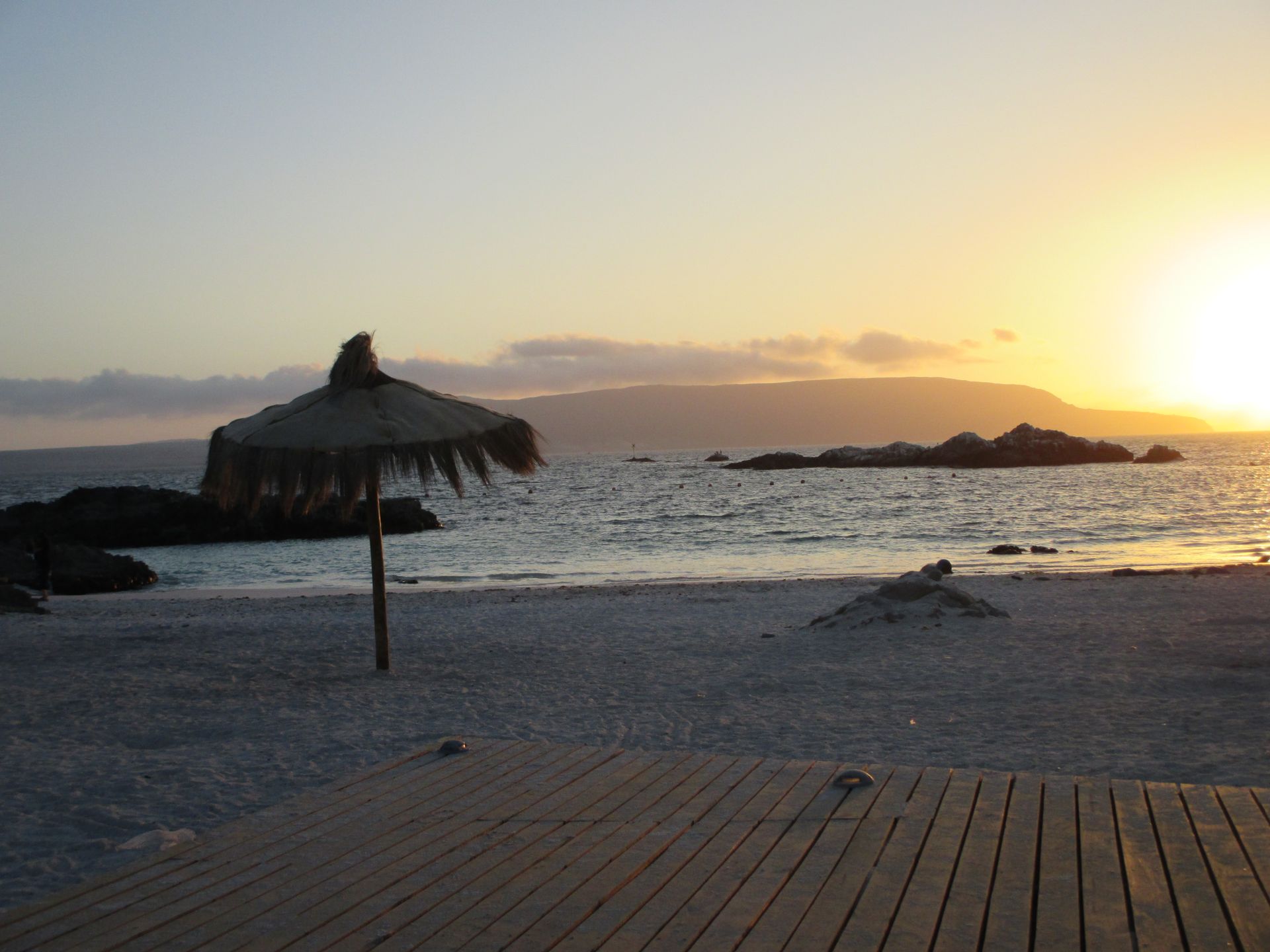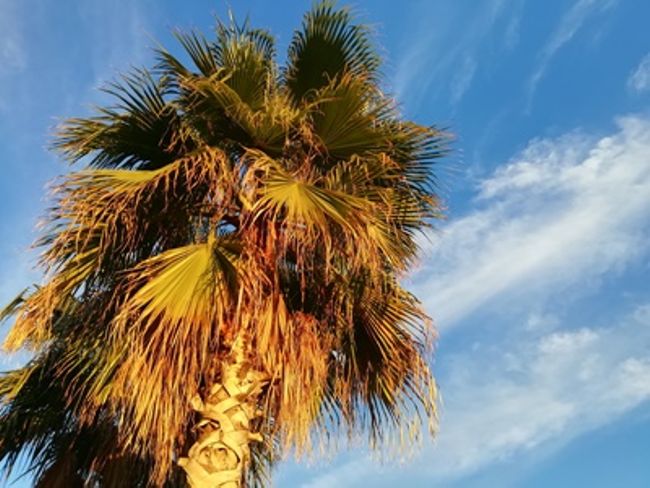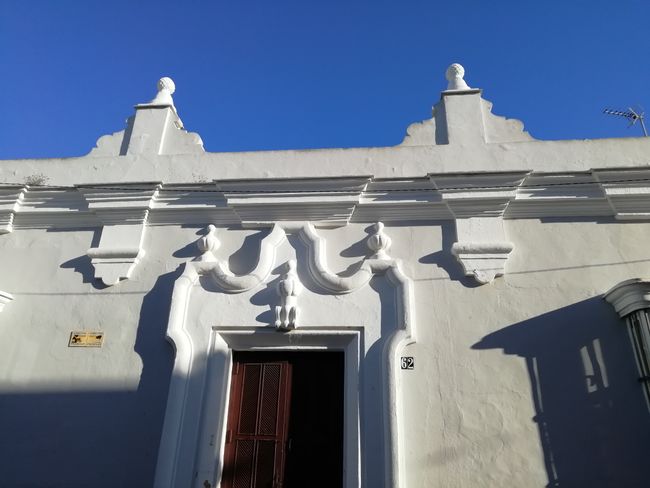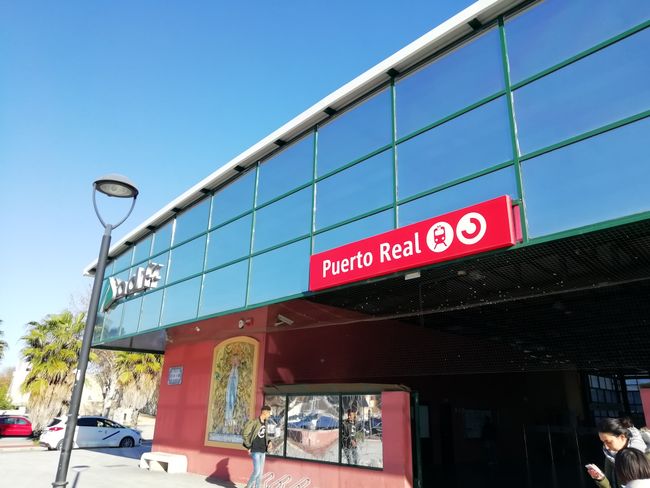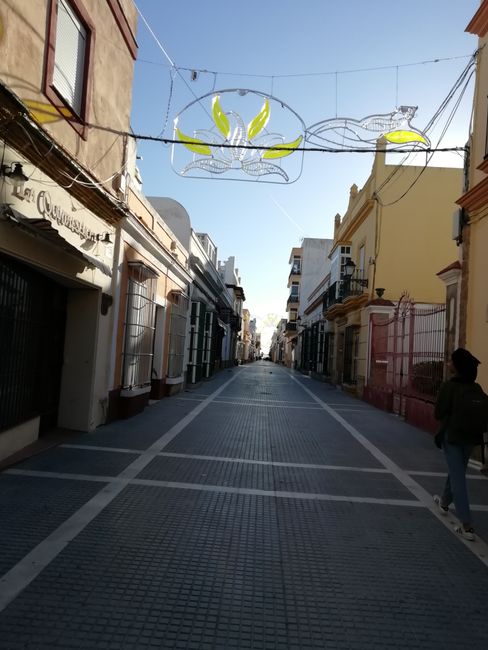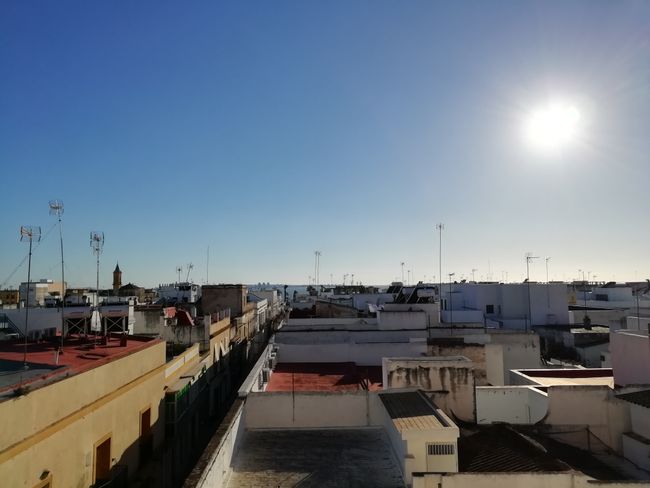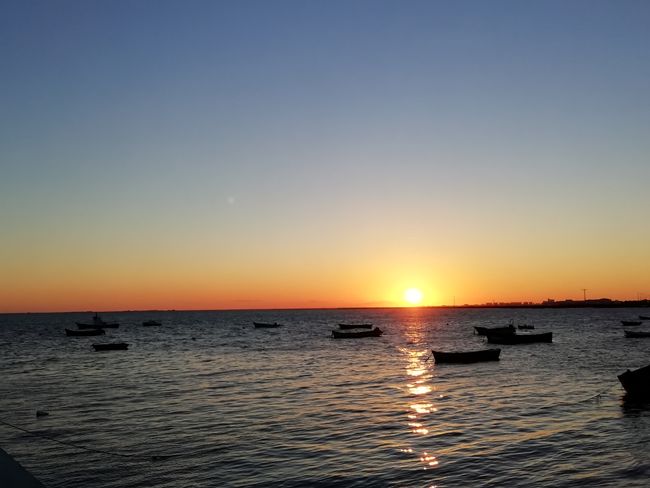New Year in Cádiz/Puerto Real
ప్రచురించబడింది: 21.01.2020
వార్తాలేఖకు సభ్యత్వాన్ని పొందండి
Early the next morning, on December 31st, we met as agreed at the bus station and drove together to Cádiz.
The journey was one of the most communicative I have ever experienced, in a positive way. It was not only entertaining for us, but also inclusive. Ana was so excited and happy to be with us and part of our plan change that her childlike joy, which was part of her loving personality and made her so likeable to me, lifted the mood of the whole bus. At least her presence reached everyone who was on this trip with us, whether they wanted to or not. In any case, it reached its peak when we passed Sevilla and drove past a horse-drawn carriage at the roundabout that led to the local bus terminal, and she leaned out of the window and exclaimed 'Amazing'. Admittedly, she wasn't really aware of where we were before, as she thought that Sevilla was already Cadiz. When she asked if we had arrived and I said that we were in Sevilla, she exclaimed again 'Wow! How beautiful'. This repeated itself as we crossed the bridge and entered Cadiz. Honestly, I found this more entertaining than the much older Spanish man who took out his phone shortly after the bus departed and loudly relayed travel reports to a family member, so that everyone heard his 20-minute phone call.
Since Yousra lived in Puerto Real, a suburb, we took the train back a bit, as we only received information about it after we had already arrived at the Terminal de Autobuses. Forty minutes later we got off there, put down our luggage and waited for her, who had informed us via message that she would pick us up. After 10 minutes we saw her. Together we walked across the square and turned left onto a small plaza, behind which a small street with stone houses began. We were in the heart of Puerto Real, and shortly afterwards turned onto the main shopping street, which was wider and had a fancier pavement compared to the street before. You could feel that this Spain was different, and it opened its door to us in a friendly way. Although I had never been to Morocco, I somehow felt a connection to this oriental country. This suburb also reminded me of Pudahuel in Santiago, although it was so different here. It was also poor, but this place had a beauty and dignity that went far beyond the ambiance of Pudahuel in Chile.
After 20 minutes, when we all had our luggage, we arrived at a square on the same street. There was the house where Yousra lived. Next to it was a friendly cafe. We entered the cool hallway, framed in marble, and went up the stairs to the third floor.
Behind the apartment door was a long hallway, with the kitchen at the back, and opposite, just to the left of the entrance door, a large living room and next to it our bedroom, which was also Yousra's room. A dream apartment. Bright and spacious.
After we all freshened up a bit and sat in the living room on the two sofas next to a roommate and a friend, and were served Moroccan tea, a first feeling of the world Yousra had invited us all to started to emerge. Just 2 days after we met, we were all really here.
When I registered the direct view of the sea from the small balcony, I was even more enthusiastic. The view over the rooftops revealed a closeness to the Orient that could not have been more real.
Everyone spoke Berber here, with different accents, but they understood each other. Ana and I listened to the sound of this beautiful language, which sounded softer than Arabic.
Two hours later, we all went to the sea and watched the sunset.
We wanted to go shopping to cook for New Year's Eve, but everything was closed. Ana was disappointed because she wanted to cook Chinese for everyone. Melek and I were just hungry. None of us had thought that the shops would be closed when we arrived.
So we just walked through the streets and ended up back on the main shopping street. The lights came on. These yellow lamps created such an unreal light that the feeling of being located somewhere far away from Spain, in a different dimension, became even stronger. Morocco was closer to us here than anywhere else, it couldn't have been more Moroccan.
We couldn't find anything to cook with.
When we bought drinks in a Moroccan shop, the owner invited us to the back room. He was Yousra's roommate's uncle. We found ourselves in a room that served as a storage room for the shop. The roommate's friend disappeared, and we were asked to sit on the stools that were placed around a crate, which served as a table. Tea was served, and within 10 minutes, Kifta was heated on a two-burner electric stove.
We all sat there and were moved by the hospitality.
There could not have been a better place for us to be on this evening and at this moment. A place that welcomed us so warmly brought a smile to all of our faces. The shopkeeper's gesture hit us where we had met in our encounters and why we were all here together, in the space of our open hearts for each other, which went far beyond the interest of the other person. We all searched and longed for the same thing, for connection.
Only the open-hearted desire for true connection gives you a love for others that can be multiplied, just as it did for us that evening. The beautiful invisible energy that follows it is comprised of gratitude and humility.
వార్తాలేఖకు సభ్యత్వాన్ని పొందండి
సమాధానం
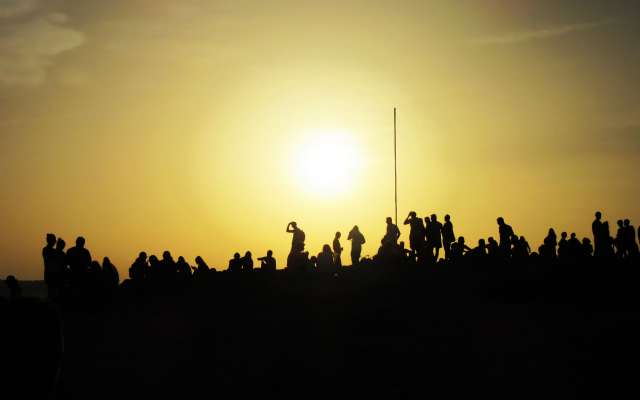
స్పెయిన్ ప్రయాణ నివేదికలు
